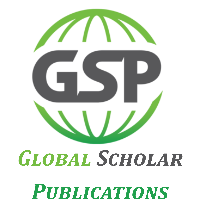Developing a framework for supply chain resilience in renewable energy operations
1 Kent Business School, University of Kent, UK.
2 Independent Researcher, Port Harcourt Nigeria.
3 Independent Researcher, Lagos Nigeria.
Review Article
Global Journal of Research in Science and Technology, 2023, 01(02), 001-018.
Article DOI: 10.58175/gjrst.2023.1.2.0048
Publication history:
Received on 17 July 2023; revised on 25 September 2023; accepted on 28 September 2023
Abstract:
The global transition towards renewable energy is accompanied by an increasing need to enhance the resilience of supply chains in the sector. Developing a framework for supply chain resilience in renewable energy operations is essential for mitigating risks such as resource shortages, geopolitical uncertainties, and environmental challenges. This paper proposes a comprehensive framework designed to strengthen the supply chain resilience in renewable energy operations, ensuring operational continuity and minimizing disruptions. The framework integrates key concepts from risk management, sustainability, and supply chain optimization, addressing both upstream and downstream activities. The framework focuses on several key components: risk assessment, diversification of supply sources, collaboration across the value chain, and the adoption of technology and innovation. Risk assessment techniques are used to identify vulnerabilities in the supply chain, enabling proactive strategies for risk mitigation. Diversification of suppliers and sourcing regions is a critical strategy to reduce reliance on single sources and prevent bottlenecks in the supply chain. Collaborative partnerships between manufacturers, suppliers, and logistics providers foster agility and flexibility, enabling the rapid adaptation to unforeseen events. Furthermore, the integration of advanced technologies, such as blockchain for transparency, IoT for real-time monitoring, and AI for predictive analytics, is incorporated into the framework to enhance decision-making and improve responsiveness. The paper also highlights the importance of sustainability and circular economy principles in making supply chains more robust and adaptable in the long term. Lastly, the framework includes performance metrics and continuous improvement processes to evaluate and enhance the resilience of supply chains over time. The proposed framework provides a holistic approach to building supply chain resilience in renewable energy operations, ensuring the continuity of critical supply flows while promoting sustainability, innovation, and risk management. The insights and strategies offered can be applied to various renewable energy sectors, including solar, wind, and bioenergy, to support the long-term growth and stability of the industry.
Keywords:
Supply Chain Resilience; Renewable Energy; Risk Management; Sustainability; Diversification; Blockchain; IoT; AI; Circular Economy
Full text article in PDF:
Copyright information:
Copyright © 2023 Author(s) retain the copyright of this article. This article is published under the terms of the Creative Commons Attribution Liscense 4.0
